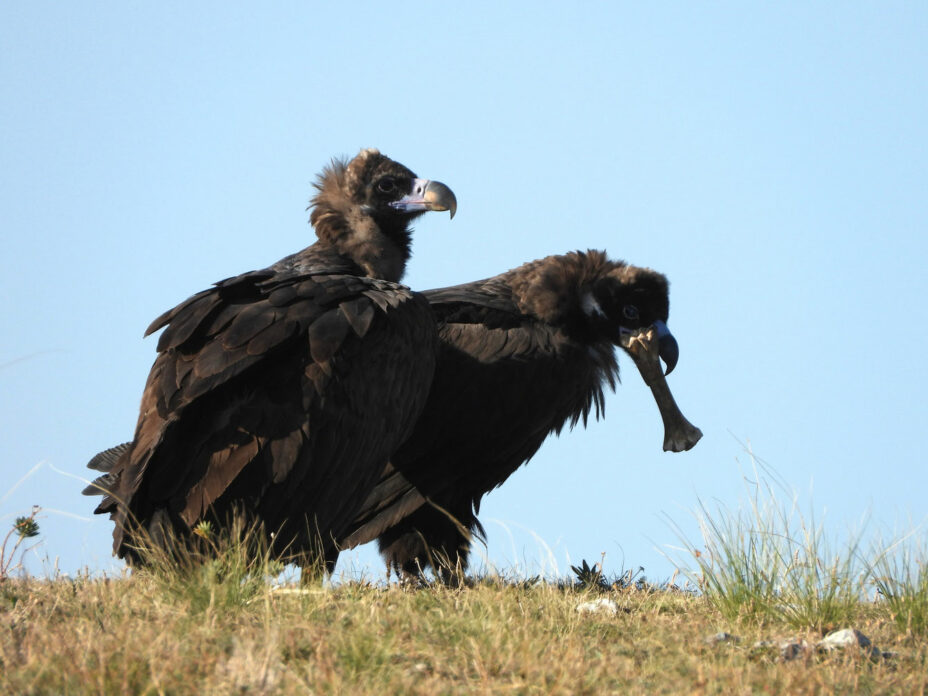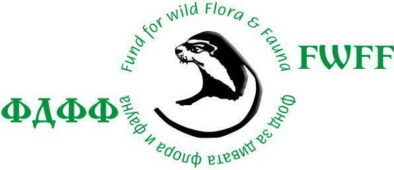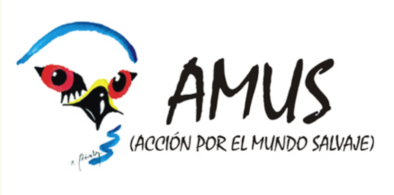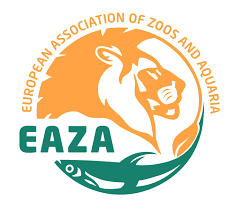Cinereous Vulture Bulgaria
A Bright Future for the Black Vulture in Bulgaria
- Homepage
- Pages
- Our Work
- Reintroduction And Restocking
- Cinereous Vulture to Bulgaria
© Hristo Peshev/ FWFF
The Cinereous Vulture was found everywhere in Bulgaria during the 19th and the beginning of the 20th century. But due to habitat loss, the widespread use of poisons to combat terrestrial predators, agricultural intensification, lack of food resources, and deliberate shooting of individuals, the species was driven to extinction. The only original colony of the Balkans species is located in the Dadia National Park, Greece, where often single birds were observed visiting vulture feeding sites in the Eastern Rhodopes, reaching both the Balkan Mountains and the Kresna Gorge. To bring the species back to the country, local and international organisations came together and launched the Vultures Back To LIFE project in 2015.
FIRST RELEASE
In a landmark moment for the conservation of Europe’s largest vulture species, two young captive-bred Cinereous Vultures coming from the Cinereous Vulture EEP were released into the wild in Bulgaria on Wednesday 25 July 2018, reintroducing the species to the country for the first time since it was declared extinct decades ago.

CONSERVATION ACTIONS AND ACHIEVEMENTS
The wildlife conservation organisation Green Balkans is leading the reintroduction effort with the support of the Fund for Wild Flora and Fauna and the Vulture Conservation Foundation (VCF), and bringing together partners from Bulgaria, Spain, Germany. Vultures Back to LIFE aims to reintroduce the Cinereous Vulture to Bulgaria and establish breeding pairs. The team will transfer and release around 60 birds, some from captive-breeding, but mostly coming from wildlife rehabilitation centres in Extremadura, Spain, into the wild in Bulgaria. The project will strengthen these efforts by tackling threats such as poisoning and electrocution, creating supplementary food stations, and improving the nesting conditions. By 2020, two out of the three expected project results have been achieved, and progress fuelled hope for the third goal. Firstly, the simultaneous presence of more than one individual in the release area at the Eastern Balkan Mountain was attained with about 5-15 individuals present at a time. Secondly, the species was present in the release area was throughout the year. Finally, the next important milestone of the project is a breeding attempt, which will restore the status of the species from Extinct to Critically endangered in the country. In 2020, the reintroduced Cinereous Vultures Balkan and VCF Know-How formed a pair in Bulgaria for the first time since the species extinction, exhibiting breeding behaviour such as exchange of gifts like bones and courtship flights, fuelling hope for this goal.
FIRST CINEREOUS VULTURE PAIR
The male Balkan and female VCF Know-How originate from Spain and were transferred and released to Bulgaria as part of the efforts to reintroduce the species. They formed the first Cinereous Vulture pair in Bulgaria in 2020!

The VCF plays a key role in the reintroduction of the Cinereous Vulture back to Bulgaria. One of the primary objectives is to secure Cinereous Vultures from rehabilitation centres in Spain that are donated by the Junta de Extremadura. These vultures are rescued and typically enter the Los Hornos recovery centre, managed by the Junta de Extremadura, as they are suffering from malnutrition and health issues. Once they recover and are fit to return to the wild, they are transferred to AMUS (Acción por el Mundo Salvaje) based in Extremadura, which has specialized installations authorized by the sanitary service for keeping the vultures during the necessary quarantine period. Before their transfer, all the birds are tested for heavy metals, antibiotics, anti-inflammatory medicines, avian flu, Newcastle and gender determination. The Vulture Conservation Foundation then organizes the transport to Bulgaria for their eventual release to the wild, coordinated by the Green Balkans and FWFF! Furthermore, the VCF also provides the team with GPS transmitters and supports the monitoring of the birds to understand their behaviour and range, which helps save birds on time if necessary, identify threats and inform targeted conservation actions. To strengthen the reintroduction efforts, the VCF also assesses the current anti-poisoning activities to establish protocols in Bulgaria and develops strategy and protocols for artificial feeding.









